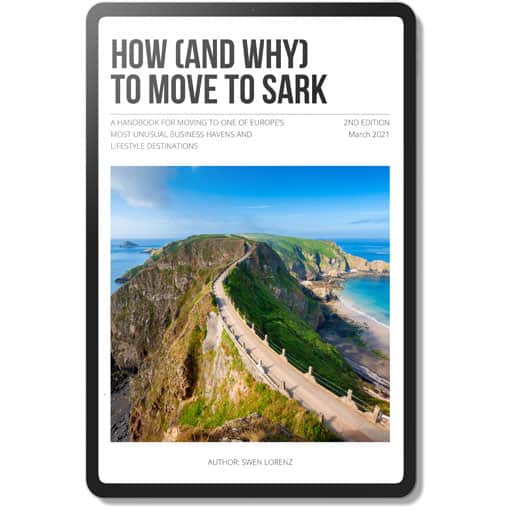If you are in the early stage of building your own company, you’ll probably find it difficult to define a financial value for your time. Reasons for this include:
- You may not be paying yourself a salary yet, i.e., there is no reliable, conventional yardstick for the value per hour.
- Ultimately, you want to create enterprise value rather than earn a salary, but you won’t know what enterprise value you have created until you have exited the company.
- You run a side-hustle, i.e., you split your time between your own business and something that is earning you money to pay the bills, which makes for time-consuming, complicated accounting for your time.
If you work a regular job or perform freelance work, you can tell exactly what you will miss out on if you spend an hour less at work or don’t accept a job.
If, on the other hand, you are building and running a business, it is much more complicated to assign monetary values to decisions on how you spend your time.
Which, in my observation, often ends with people looking at this question from the entirely wrong angle. In the vast majority of cases, I observe people vastly underestimating the value of their time – both the financial as well as non-financial value! As a consequence of that, they underestimate the damage they do to themselves (and other stakeholders) when wilfully delaying crucial work.
Here are some examples that should help you reconsider how you value your time.
It’s the last month that counts
I had the idea for this article during a board meeting of a start-up.
The discussion centred around the company’s cash reserves, its burn rate, and how fast (or not) we were going to advance with building the company.
The discussion struck me as providing a particularly illustrative example.
Board member 1: “If we delay the planning by one month, it will only cost us the equivalent of one month’s cash burn rate, i.e., $100,000.”
Board member 2: “Our technology is patented for a limited time span. What we will lose by postponing is the last month of sales presented in our business plan. Alas, the cost for delaying by one month is $3.7m in net profits or 37 times more than it appears at first sight.”
Not every business is based on a time-limited patent, but everyone’s life is limited by time.
If you delay getting a job or starting a business by one year, you will probably lose one very lucrative year in the future. You can also look at it this way: you’ll have to spend the 66thyear of your life working, which will probably be harder on you physically and psychologically than if you hadn’t “wasted” (from the perspective of building your business, your income and your fortune) the 21styear of your life a few decades earlier.
Everything you are delaying now will have potent effects further down the road.
The power of compound interest is one of the reasons behind this.
What you do today improves all your tomorrows
To illustrate what compound interest can do for you if you manage your time strategically and wisely, here is an example based on someone saving a bit of money every month and investing it. The same arithmetic applies to the money you make as an entrepreneur.
If you start saving $250 a month at age 25 and you invest it with an 8% annual return, you’ll have $878,000 available to you when you reach the conventional retirement age of 65.
If you start saving the same amount at age 35, you’ll only have $373,000 in the bank at age 65.
Delay until you are 45, and you’ll end up with $148,000.
The time you waste “early” in your life is a very, very expensive time to waste. Given our long life expectancy, the word “early” does not need to refer to your twenties.
Building a business and either pocketing the business’ income or selling it for a one-off amount will the single biggest financial pay-off you could realistically achieve in life. Look at these pay-offs from the perspective of having them earlier in life and being able to let them compound in some shape or form. You’ll start to see just how valuable your time is.

Looking for clever ways to invest your hard-earned cash?
Head over to my investment website Undervalued-Shares.com for common sense investment opportunities from around the world. Ideas that you won’t find anywhere else!
What was Bill Gates’ time worth when he was a student?
Around the year 2000, newspaper stories started to circulate about how much money Bill Gates was earning per second.
One figure bandied around at the time was $300, and how this affected the rationale for Microsoft’s founder not really having the time to pick up a $100 note. If he dropped the note on the ground, it would take 3 seconds to pick it up. He’d theoretically waste $900 to pick up a $100 note.
This story circulated at a time when Gates was already the world’s richest man. Everyone immediately got the maths behind it.
The obvious but more difficult question is, what was Gates’ time worth per second when he was a young start-up entrepreneur with a company that didn’t have a single dollar in revenue yet?
I’d argue that even then, Gates should have valued his time at a suitably high price. Anything he did then helped him to create the extraordinary money fountain that has been spouting cash ever since Windows became the world’s no. 1 software. You have to work your way backward, but his time sure wasn’t worth the 0 dollars in salary he earned during the start-up phase.
You could apply the Net Present Value (NPV) method of discounting a future payment using a suitable interest rate. E.g., working on your business might make you $0 right now, but it could lead to you earning $250 an hour in one year’s time. The correct way to measure the value of your time right now is to take these $250 per hour and apply a discount rate to them to figure out what this sum of money would be worth if you received it today rather than in the future. The NPV method requires to make assumptions and therefore isn’t necessarily accurate, but it hones your skill to recognise the future ramifications of wasting time today.
Gates is also a prime example for someone who made money early enough to be benefitting from compounding, and he probably has decades left to enjoy his wealth. Getting rich when you are old and decrepit is of much less use than having oodles of money when you still have your wits and your physical capabilities to make the most use of it. Obviously, there is also something to be said in favour of taking time to travel when you are young because you won’t be scaling Mount Everest at age 90. But that’s not the primary subject of this article.
Sharpen your awareness for the broad scope of damage done by delaying
Arguably, all of this may strike you as fairly theoretical. Us human beings are not naturally geared towards thinking in decade-long lifespans, nor does our brain easily comprehend the power of compounding.
It might be easier to think about all this in terms of a few soft factors:
- Much of a new company’s success depends on building up momentum. Think of it like an airplane, i.e., it needs extraordinary effort to get off the ground (Microsoft during the 1980s) but then becomes pretty easy to maintain once it’s at cruising altitude (Microsoft ever since the 1990s). If you aren’t pushing for maximum speed in building your company, will you likely attract the best available talent, generate the most PR interest, and have the most impressed clients who’ll recommend you elsewhere? How many half-hearted efforts have you ever observed that led to stunning, lasting success?
- If you spend just some of your time on building a business, and one of your direct competitors devotes their entire time on pursuing the same goal, who is more likely to win?
- For most anyone, it’s true that from your 40s or at the very latest your 50s, your body starts to go into a long-term decline. There is an element of luck to how fast or slow this will be in your case, and exceptions prove the case. Do you fancy the idea of working very hard during a period of your life when it’s probably becoming only more challenging to sustain a high tempo? Obviously, this holds true even if you start a business later in life (which, as I once showed in another article, actually has a much higher chance of succeeding!).
Time runs out quickly (if you waste it)
If you live to 90, you have 32,850 days to play with.
Assuming you won’t be building a business between the ages of 0-20 and 70-90, that leaves you with 18,250 days.
Using your own age, you can quickly figure out how much time you have left to work on your business, your career, your income, and your investments. E.g., if you are 40, you have 9,125 productive days left. If you don’t work weekends, that’s immediately reduced to 6,517 days. Tick, tock!
If you manage your time carefully, these are long periods that much can be achieved in. All the more if weekends and holidays don’t stop you from advancing your business.
Equally, it’s not THAT many days. Most of us underestimate how starting any sort of business will require you to spend an INSANE amount of time to get it off the ground. Equally, most of us underestimate how big the pay-off will be once your business is hitting its stride and how much you can make off it if you have time left in your life.
All of these factors hold true no matter how advanced (or not) your life may already be. Being a bit older may leave you with fewer days, but you already have more experience and a stronger network, which can easily make up for the lower amount of remaining time. Don’t let any of this dishearten you – see it as a call to action!
So, what are you waiting for?
If you enjoyed this article, you will probably also find the following useful:
Want to print this article? Open a printer friendly version.
Did you find this article useful and enjoyable? If you want to read my next articles right when they come out, please sign up to my email list.
Share this post:


